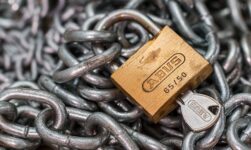
In the world of conveyancing, where the stakes involve one of life’s most significant transactions, the integrity of the process is paramount.
Ethical conduct is not just a legal requirement; it’s the bedrock of trust and professionalism in property dealings.
This blog post delves into the ethical landscape of conveyancing, focusing on two critical areas: navigating conflicts of interest and ensuring client confidentiality.
As conveyancers, we are entrusted with sensitive information and tasked with acting in our clients’ best interests, often in complex and high-pressure situations.
Our discussion will explore the importance of ethical behaviour, outline the challenges conveyancers face, and provide practical advice for upholding the highest ethical standards.
Join us as we navigate the intricate ethical considerations that are foundational to the conveyancing profession, ensuring both compliance and client confidence.
Understanding Ethical Obligations in Conveyancing
Ethics in conveyancing transcends mere compliance with laws and regulations; it embodies the moral principles guiding conveyancers in their professional conduct.
Ethical behaviour ensures that all parties in a property transaction are treated with fairness, integrity, and respect.
At the heart of a conveyancer’s ethical obligations are professional codes of conduct, which provide a framework for decision-making and behaviour that reflects the profession’s values and societal expectations.
The essence of these ethical obligations is to safeguard the interests of clients, maintain the dignity of the legal profession, and uphold the justice system.
Conveyancers must navigate through potential ethical dilemmas, making decisions that avoid harm to their clients or the public interest.
This includes being transparent in dealings, avoiding conflicts of interest, maintaining client confidentiality, and ensuring that their actions do not undermine the trust placed in them by clients and the broader community.
Conflicts of Interest
In the realm of conveyancing, a conflict of interest occurs when a conveyancer’s ability to act in the best interest of one client is compromised by their duties to another client, their own personal interests, or those of a close associate or family member.
These situations, whether actual, potential, or perceived, can undermine trust and confidence in the conveyancing process, leading to ethical dilemmas and legal complications.
Identifying Conflicts of Interest
The first step in managing conflicts of interest is to identify them before they become problematic.
This involves a thorough assessment of each new client and transaction, considering any connections that might influence the conveyancer’s impartiality.
Regular training and clear internal policies can equip conveyancers to recognize and address these situations proactively.
Legal and Ethical Implications
Conflicts of interest, if not properly managed, can lead to breaches of ethical codes, legal sanctions, and damage to professional reputations.
Ethically, conveyancers have a duty to act with integrity, avoiding situations where their judgment could be swayed by personal gain.
Legally, failing to disclose or improperly managing a conflict of interest could result in regulatory penalties and loss of licensure.
Avoiding and Managing Conflicts of Interest
To effectively manage conflicts of interest, conveyancers should:
- Disclose any potential conflicts to all affected parties as soon as they are identified.
- Obtain informed consent from all parties involved before proceeding.
- Implement internal controls to ensure that sensitive information is not improperly shared between parties involved in a conflict.
- Refuse or terminate engagements when conflicts cannot be resolved in a way that protects the interests of all parties.
Effectively managing conflicts of interest is crucial for maintaining the integrity of the conveyancing process.
By adhering to ethical guidelines, legal requirements, and best practices, conveyancers can navigate these challenges, ensuring fairness and transparency in all transactions.
Client Confidentiality
Client confidentiality is a cornerstone of the conveyancing profession, underpinning the trust and security essential to successful property transactions.
Conveyancers are privy to a wealth of personal and financial information, making the protection of this data paramount.
The Importance of Confidentiality
Confidentiality is not just a legal obligation but a fundamental ethical duty. It reassures clients that their personal and financial details are secure, fostering a relationship of trust.
For conveyancers, respecting confidentiality means ensuring that all client information, whether communicated verbally or in writing, is protected from unauthorized access or disclosure.
Legal Framework
The legal framework surrounding client confidentiality includes laws on data protection, privacy, and professional conduct.
These laws dictate how personal information must be handled, stored, and shared, ensuring that clients’ rights to privacy are respected throughout the conveyancing process.
Challenges in the Digital Age
The digital transformation of the conveyancing process, while increasing efficiency, also introduces new challenges to maintaining confidentiality.
Cybersecurity threats, such as hacking and phishing scams, pose significant risks to the secure handling of client information.
Additionally, the use of digital communication channels can inadvertently lead to breaches if proper precautions are not taken.
Best Practices for Securing Client Information
To combat these challenges, conveyancers should adopt a comprehensive approach to data security, including:
- Implementing strong cybersecurity measures, such as encryption, firewalls, and secure password policies.
- Regularly updating and patching software to protect against vulnerabilities.
- Training staff on the importance of confidentiality and the risks associated with digital communication.
- Establishing clear protocols for the storage and disposal of client information.
- Utilizing secure, encrypted communication channels for sharing sensitive information with clients and other parties involved in the transaction.
Handling Breaches of Confidentiality
Despite best efforts, breaches may occur. It’s vital for conveyancers to have a plan in place for responding to such incidents.
This includes promptly informing affected clients, taking steps to mitigate any damage, and cooperating with regulatory bodies as required.
Navigating Ethical Dilemmas
Ethical dilemmas in conveyancing often arise when professionals are faced with situations where the right course of action is not clear-cut, potentially involving conflicts between legal obligations, ethical guidelines, and personal values.
Ethical Decision-Making Frameworks
When confronted with an ethical dilemma, conveyancers can benefit from employing a structured approach to decision-making. One such framework involves the following steps:
- Identify the ethical issue, distinguishing it from legal or business concerns.
- Gather all relevant information to understand the context and implications of the dilemma.
- Consider the stakeholders involved and how different actions might affect them.
- Evaluate the options by considering legal requirements, ethical guidelines, and the potential impact on all parties.
- Make a decision based on this analysis, aiming for the most ethical outcome possible.
- Implement the decision with transparency and integrity.
- Reflect on the outcome to learn from the experience and inform future decisions.
This structured approach helps conveyancers to weigh their options carefully and make decisions that uphold both legal obligations and ethical standards.
Seeking Guidance
Ethical dilemmas can sometimes be too complex to handle alone. In such cases, seeking guidance is crucial:
- Consult with colleagues or mentors who may have faced similar situations.
- Refer to professional codes of conduct provided by regulatory bodies or professional associations, which can offer guidance on handling specific issues.
- Seek legal advice to ensure compliance with the law while adhering to ethical standards.
- Utilize resources provided by professional bodies, such as advisory services or ethics committees, which can offer valuable insights and support.
Building an Ethical Practice
In the dynamic landscape of conveyancing, establishing an ethical practice is not just a regulatory requirement but a foundational pillar that distinguishes a firm in the eyes of its clients and peers.
Ethical practices foster trust, encourage transparency, and build enduring client relationships, which are invaluable assets in the competitive real estate sector.
Central to nurturing an ethical environment is leadership’s role in embodying and promoting integrity and accountability at every level of interaction and decision-making.
Continuous education and training serve as the bedrock for understanding and implementing ethical standards.
Implementing robust policies and procedures solidifies an ethical framework within the practice, guiding behaviour and decision-making.
Moreover, the benefits of maintaining an ethical practice extend beyond regulatory compliance.
They enhance the firm’s reputation, reduce legal risks, improve client satisfaction, and contribute to a positive workplace culture, attracting and retaining top talent.
In essence, an ethical practice is a cornerstone for building a successful, respected, and client-focused conveyancing business.
Conclusion
The ethical considerations in conveyancing, from navigating conflicts of interest to ensuring client confidentiality and making difficult ethical decisions, underscore the complex interplay between legal obligations and moral integrity in the profession.
By fostering an ethical practice through leadership, continuous education, and clear policies, conveyancers not only adhere to the highest standards of professionalism but also enhance their reputation and client trust.
Ultimately, the commitment to ethics in conveyancing transcends regulatory compliance, embodying the core values of fairness, transparency, and responsibility that define the profession and ensure its enduring respect and trustworthiness in the eyes of the public and the legal community alike.






